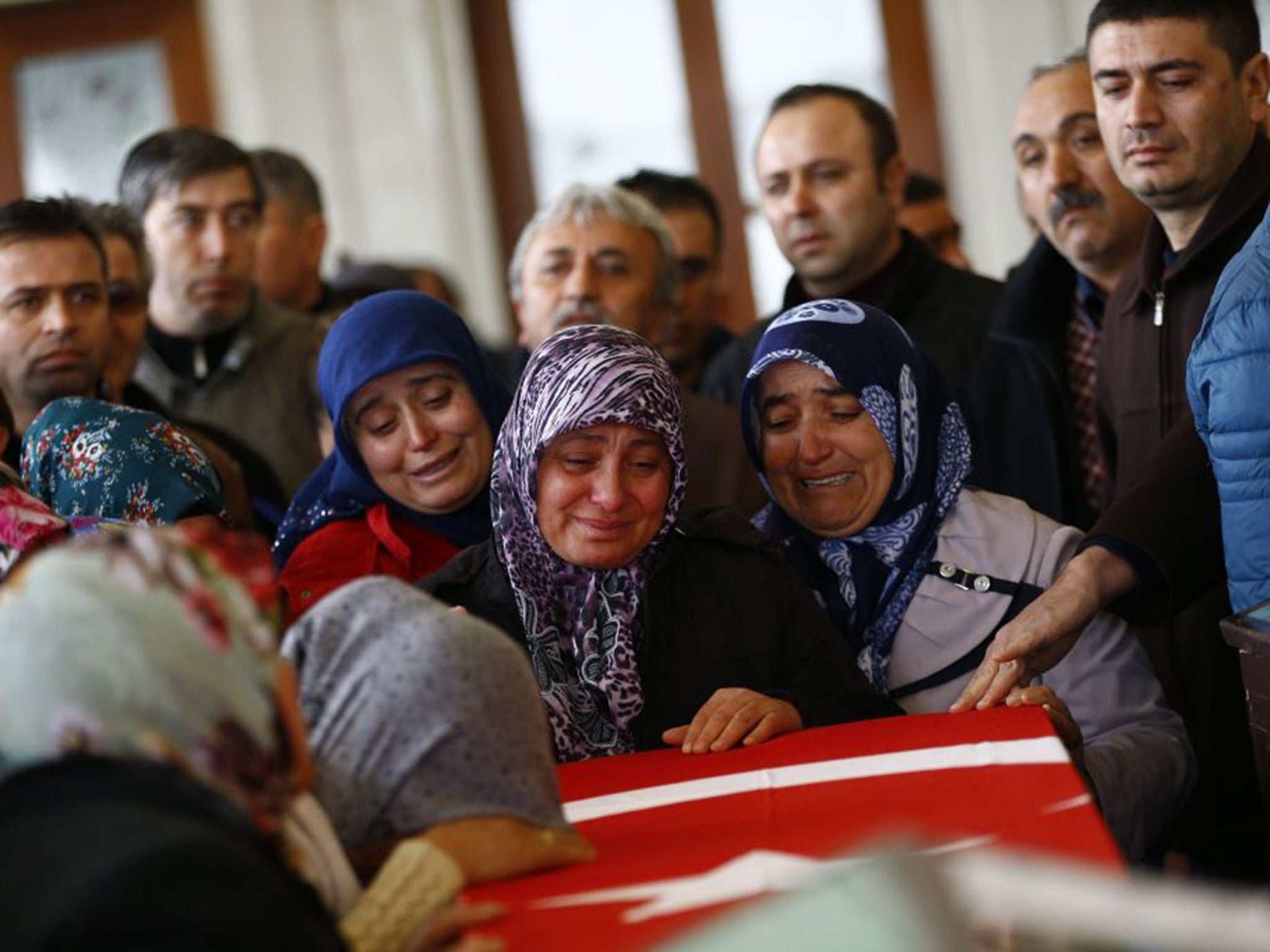You can't change your Facebook profile picture for Ankara, because brown lives still aren't worth social media's grief
Put it this way: if you have used Facebook’s flag feature after the Paris attacks, you are guilty by association of Euro-centric mourning

Your support helps us to tell the story
From reproductive rights to climate change to Big Tech, The Independent is on the ground when the story is developing. Whether it's investigating the financials of Elon Musk's pro-Trump PAC or producing our latest documentary, 'The A Word', which shines a light on the American women fighting for reproductive rights, we know how important it is to parse out the facts from the messaging.
At such a critical moment in US history, we need reporters on the ground. Your donation allows us to keep sending journalists to speak to both sides of the story.
The Independent is trusted by Americans across the entire political spectrum. And unlike many other quality news outlets, we choose not to lock Americans out of our reporting and analysis with paywalls. We believe quality journalism should be available to everyone, paid for by those who can afford it.
Your support makes all the difference.When I heard that Facebook refused to help its users to change their profile picture to a Turkish flag in support of the victims of the Ankara bombings, I remembered how much I hated Sports Day.
Annual Sports Day was the bane of my existence. I pulled a sickie in Year 3. I got the wooden spoon in the sack race in Year 4. I don’t remember Year 5; I try to forget the fact that I have always preferred Walkers to walking, Hersheys over the hurdles and I’d take Shandy over the shot-put. But Year 6 Sports Day is one that I’ll never forget.
This was my day to shine. I had been called in as a last-minute substitute in the 4x1 relay. I was to take the second leg. Britain had won its bid to host the London Olympics the day before. I wanted that gold medal. I was ready to bring home the glory for my team; the Year 6 Iraqis were going to destroy the Year 6 Iranians – politics played out in the playground, you see.
Hassan goes flying out the blocks and before I know it, I’m preparing for the changeover. “Don’t drop the baton,” I tell myself. Bam! I’m off. And within seconds the Iraqis’ hopes of Olympic glory are dashed – I trip over my laces and fall, dramatically, to my sporting demise.
A friend of mine, Gentrit, running in the outside lane for the Year 6 Albanians comes to my aid. He looks down at my bloody knees and remarks, in shock: “Wow! Your blood is red too!”
And there it was. Two innocent, curious, maths-loving children from different corners of the globe realised that – despite the difference in their skin colour – they were, at their plasmatic core, one and the same. It was as though we were the only two in the world to bask in this common knowledge.
Perhaps we were: minutes later, Sports Day was cancelled - London was being bombed. This was no longer Sports Day: it was 7/7. In an instant, innocence gave way to experience and tragedy.
The world cried with London. Flowers were laid, national mourning declared, and memorials were erected. The masses would have changed their Facebook profile picture to a British flag if they could, just like they did with the French flag for the victims of Paris attacks last November.
Would they have done the same for the victims of Ankara? We’ll never know of course, because Facebook picks and chooses when to activate the flag feature. In other words, Zuckerberg has the power to define what constitutes ‘tragedy’ and, unfortunately for the grieving families of Ankara, brown deaths, it seems, do not fall within the Euro-centric definition.
The majority of people who put French overlay on their profile picture after the Paris attacks acted in good faith; they had no intention of devaluing Turkish, Iraqi, Lebanese, Ivorian or Palestinian lives. But they did.
This is about outcomes, not intentions. Intentional or unintentional, selective mourning on social media amounts to public endorsement of a narrative that values white lives over others, a narrative drenched in white supremacy and imperialism.
Put it this way: if you have used Facebook’s flag feature, you are guilty by association. Didn’t mean it? Fine. The judge will reduce your sentence in the same way she does if you are guilty of manslaughter rather than murder. But the bottom line stands: you’re going down.
Believe me, this isn’t coming from that annoying know-it-all who was always the first to put their hand up in class: I, too, was guilty by association. I’m arguably guiltier than you: I – a brown man - devalued my ‘own people’, as it were.
“Don’t forget where you came from,” my mother used to tell me – the night I draped my profile picture in red, white and blue, I did just that.
I forgot that, since 2003, half a million Iraqis have died and not a hashtag was given. I forgot that sometimes we view the “Orient” as, to borrow from Edward Said himself, the “savage” other - sub-human, violent and not worth the taxing emotion of human grief.
But I am a reformed man now. The slammer did me the world of good. Yes, I cried ‘Je Suis Charlie’. Yes, I was Paris. But crucially, today, as the TAK takes credit for Sunday’s attacks, a move which could take yet more lives, I am Ankara. Are you?
Join our commenting forum
Join thought-provoking conversations, follow other Independent readers and see their replies
Comments